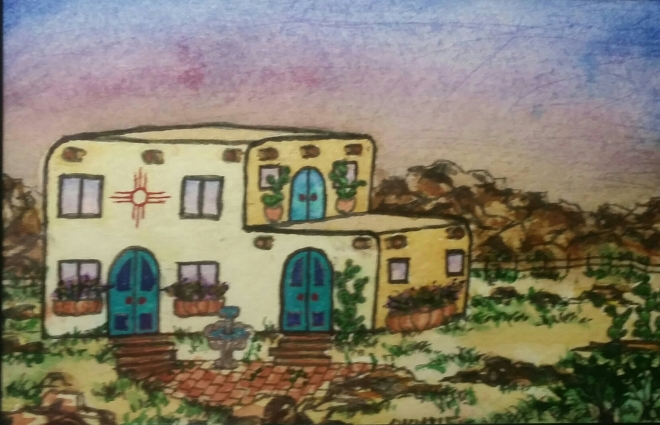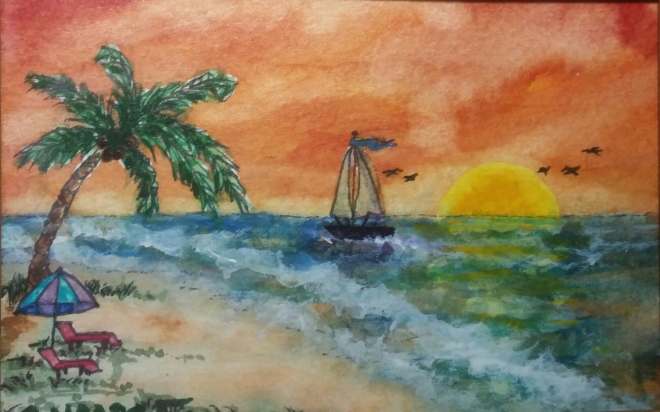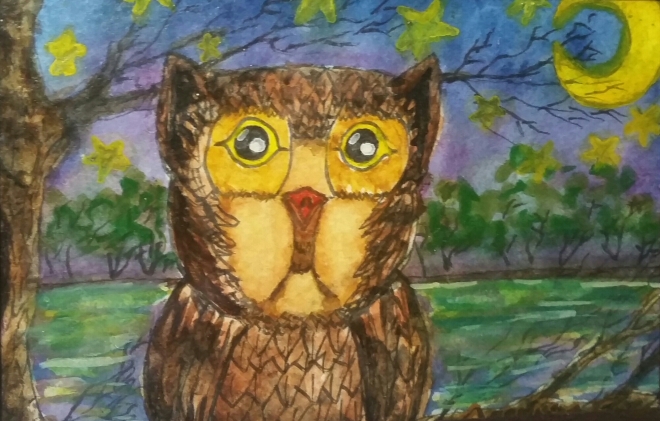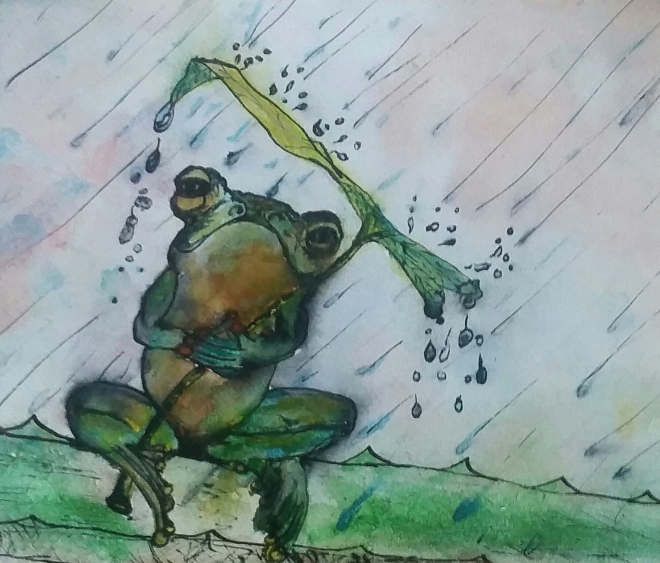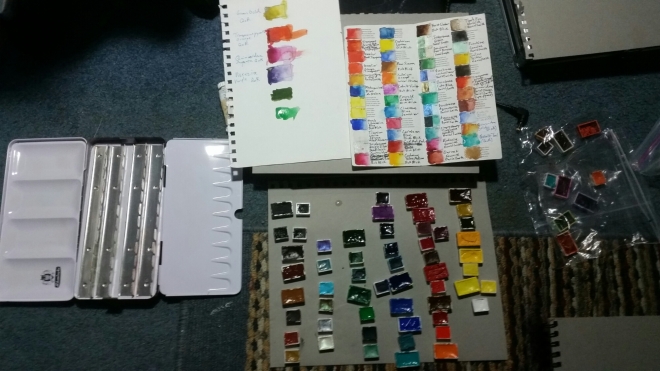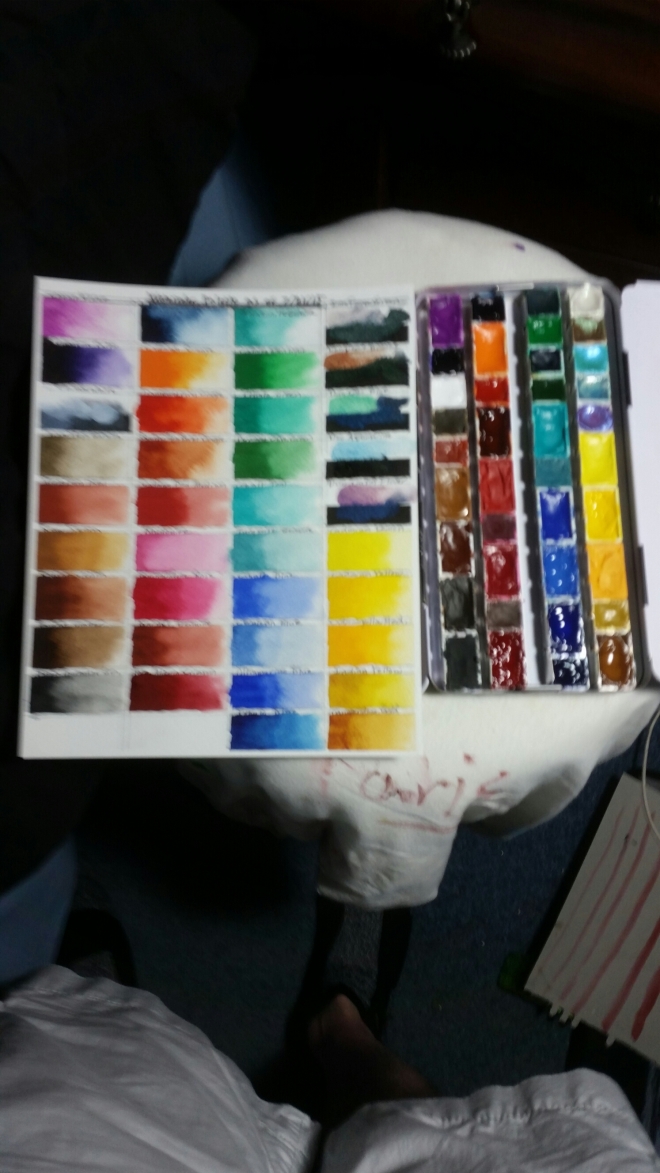This is a short explanation of how I go about a painting. Especially for something like this where it has to be a pretty accurate representation. This is a study of my grandmother’s house completed in watercolor and it is a quarter sheet of Strathmore Imperial 140 pound cold press paper. I plan to revisit this subject from an angle and complete the painting in oil on a much larger canvas. Look for updates on that in the future.
First here is the reference photo I was working from for this angle.
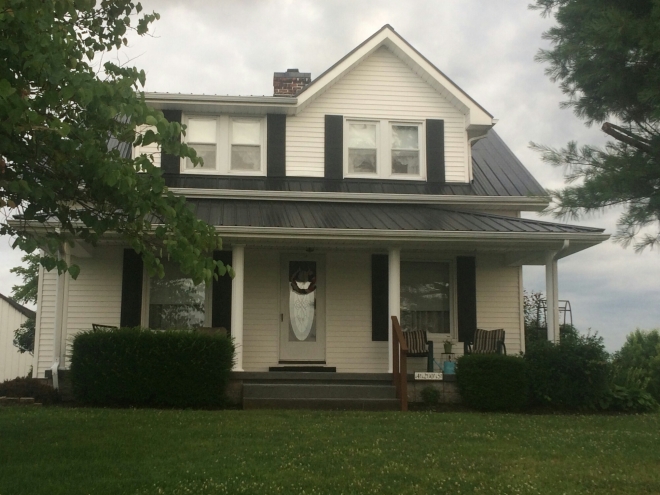
The first thing I did was make a pencil sketch of the house making sure to get a lot of the details along the way.
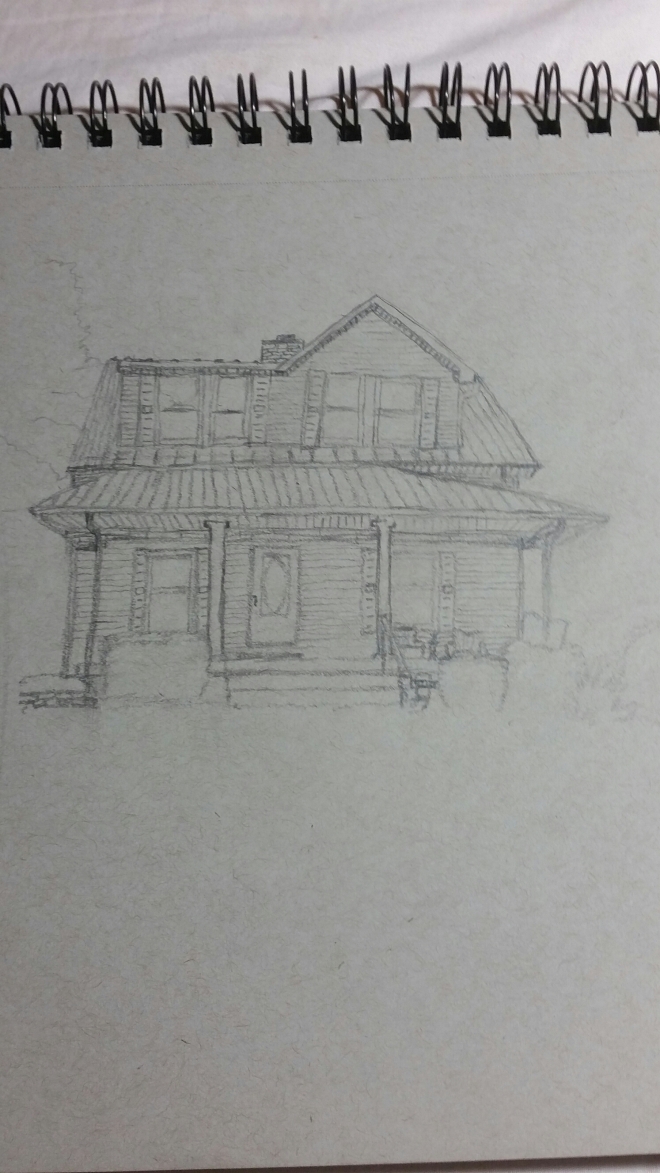
Once I’m pretty happy with the sketch I cover the back of this paper with soft lead pencil such as 6B. Then I fix it over the watercolor paper and trace it with a pen to transfer the image correcting minor mistakes along the way.
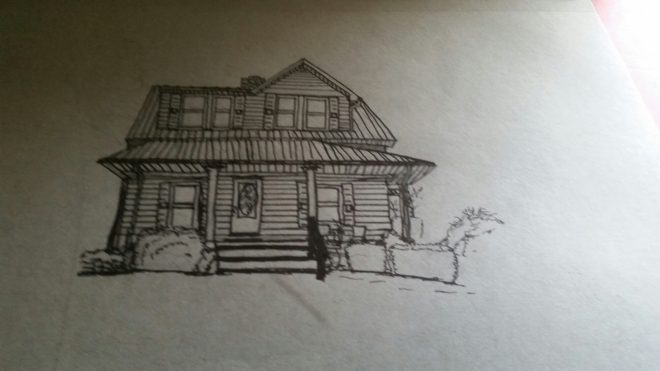
Once that the image is transferred it is time to start painting Finally. I begin by picking a horizon behind the house and paint in the sky. I added quite a bit of color to the sky to make it feel warmer and brighter out. I also block in basic shapes of color as well as shadows and highlights.
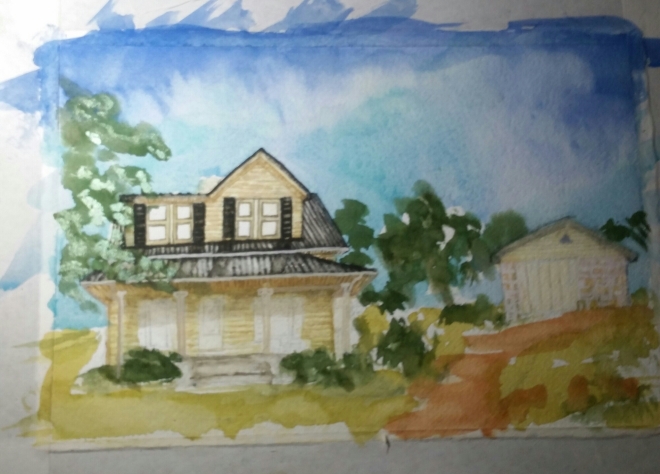
From here I finish adding the details on the house like the door and shutters first as well as the guttering system and support columns. Also adding the white siding panels with white gouache. The final painting is completed by adding more grasses to the foreground as well as flowers and patio furniture in warm colors.
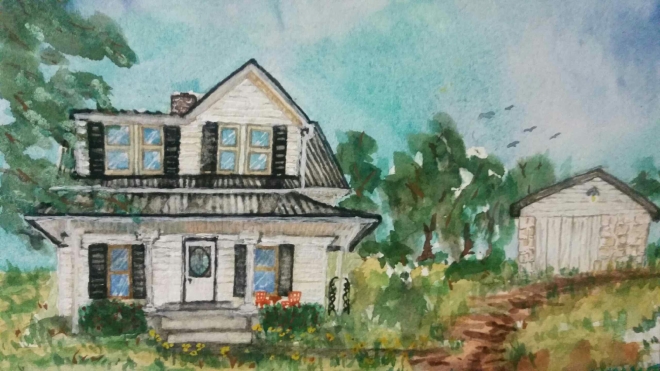

So here is the finished image next to the reference photo for comparison. I see several things that could be improved but overall I’m pretty happy with the end result. I will make it better in oil paint 🙂
http://www.RezilientInk.com
